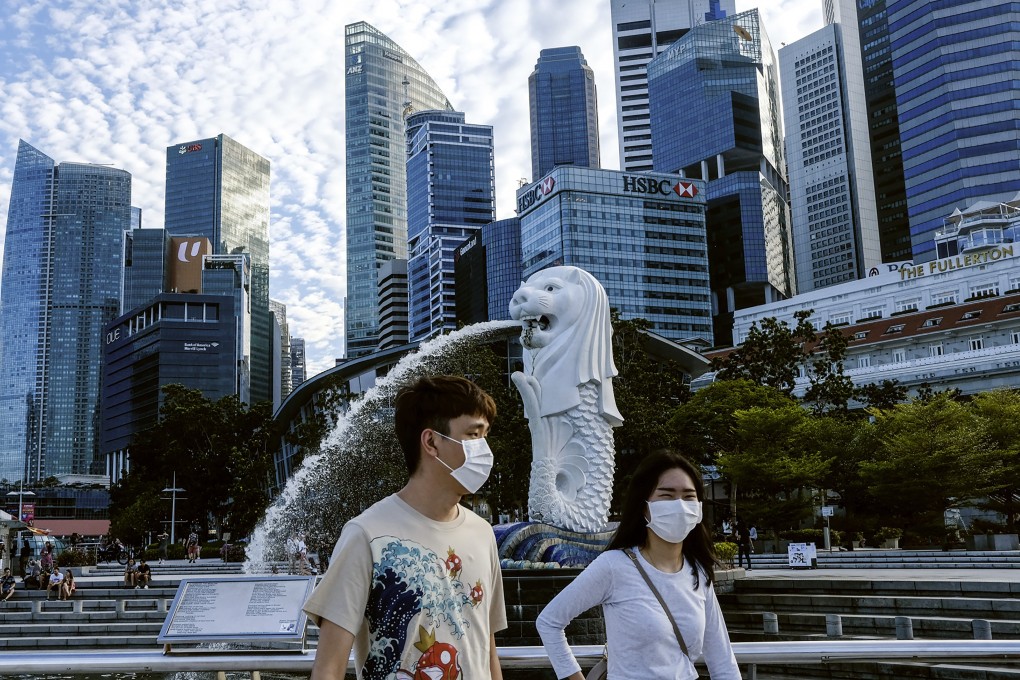Singapore’s return to tighter rules raises the question: what does living with Covid-19 really mean?
- The city state’s transition from a ‘pandemic to endemic’ approach has been derailed by a rise in cases, prompting a return to stricter social measures
- Some analysts agree it’s best to not live on the edge, but others say policy rollbacks erode public trust and expanding vaccination should be the priority

The task force co-chairs, including Health Minister Ong Ye Kung, earlier this month outlined plans to transition to a new normal – effectively treating Covid-19 like the flu once a critical mass of the population was vaccinated.
Instead of monitoring infection numbers, they said, the focus would be on outcomes, such as the number of patients in intensive care (ICU) or needing oxygen.
Officials were particularly unnerved by the cases linked to the Jurong Fishery Port, which they feared would expand quickly in markets and adjoining cooked food centres patronised by the elderly. About half of Singapore’s 5.7 million population has been fully vaccinated, while 73 per cent have received at least one vaccine dose. Among citizens 70 and older, 71 per cent are fully vaccinated